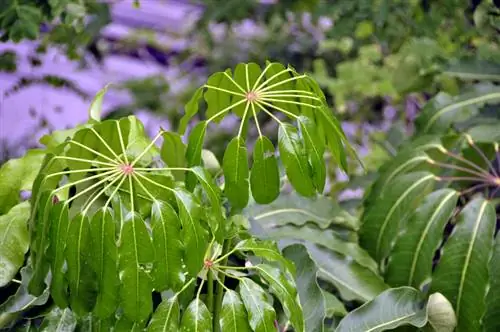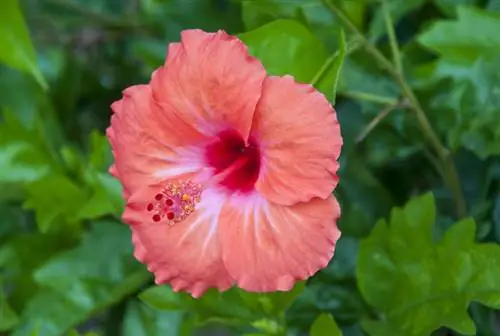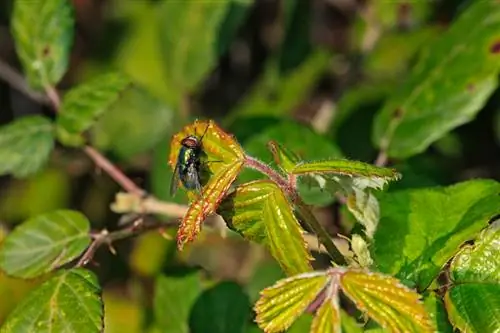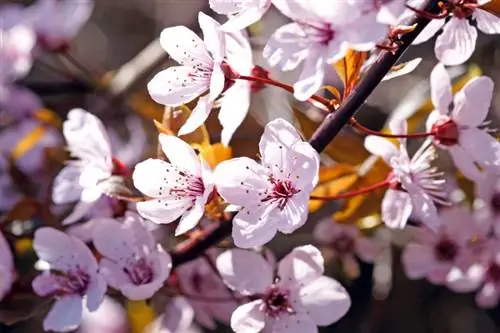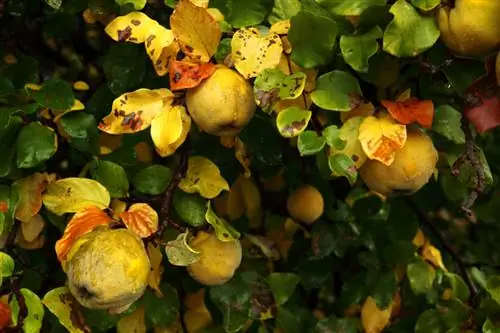- Author admin leonars@hobbygardeners.com.
- Public 2023-12-16 16:46.
- Last modified 2025-06-01 06:02.
The long stems protrude gracefully from the trunk and provide support for the umbrella-like to palmate leaves. But the image of a radiant aralia does not always look flawlessly beautiful. It can also be afflicted by diseases.
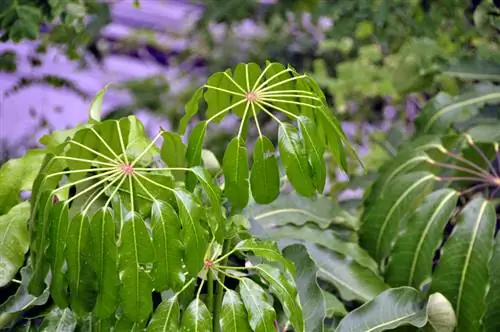
What diseases can affect Schefflera and how can they be treated?
Diseases rarely occur in Schefflera, the most common disease is root rot. Symptoms include a foul odor, yellowing leaves, leaf drop, wet soil and black roots or shoots. If detected early, repotting into fresh soil and optimized watering behavior will help.
Hardly susceptible to diseases
Radiation aralia are usually not susceptible to disease, but are extremely robust. Pests are more likely to attack this houseplant. This is mainly due to the indoor air being too warm and dry, which is causing problems for this former tropical plant.
How does root rot appear on the Schefflera?
Only one illness can occur. It's called root rot. It is a fungus that has nested on the plant or in its root area. The roots rot and later the rot spreads to other parts of the plant. The fungus is favored by moisture and can lead to the Schefflera dying.
You can recognize this disease on your Schefflera by these aspects:
- rotten smell coming from the earth
- Leaves turn yellowish
- Leaf shedding
- wet earth
- Stem base is black
- black roots
- black shoots
- stunty growth
Act quickly - repot
You can still help your Schefflera in the early stages. However, this requires good observation skills. Otherwise, the chances of survival are almost zero. If the root rot has progressed too far, you should dispose of your Schefflera.
How to save the plant in case of initial root rot:
- take out of the pot
- crumble off wet, putrid-smelling soil
- if applicable cut off black roots
- Prepare pot with fresh soil
- repotting
Adapt care - optimize watering
To avoid root rot, you should only water the Schefflera when the top layer of soil has dried out. The basic rule for this houseplant is: It's better to water less than too much. Temporary dryness is tolerated better than waterlogging. Also make sure that excess water can drain away freely. That means: create drainage and ensure drainage holes in the pot.
Tip
As a rule, it is sufficient to water the Schefflera once (winter) or twice (summer) a week to protect it from moisture and severe dryness.

